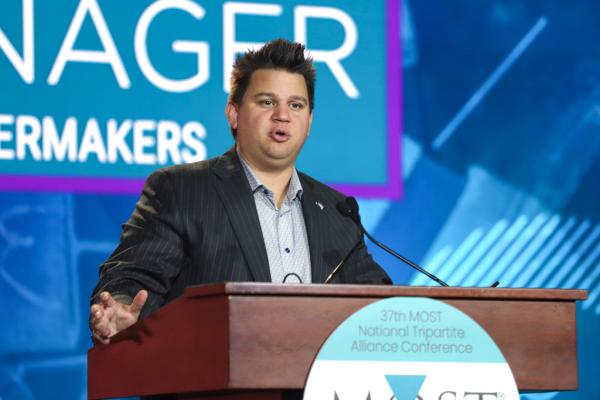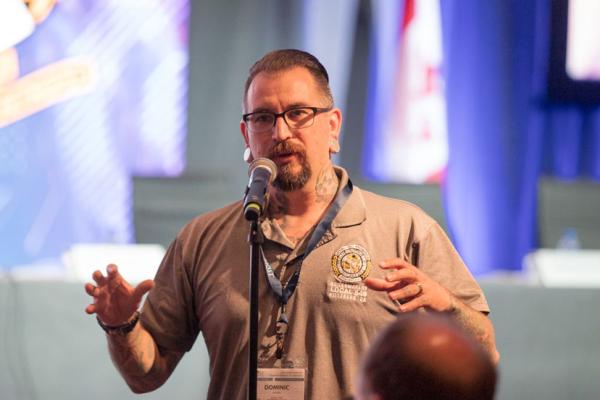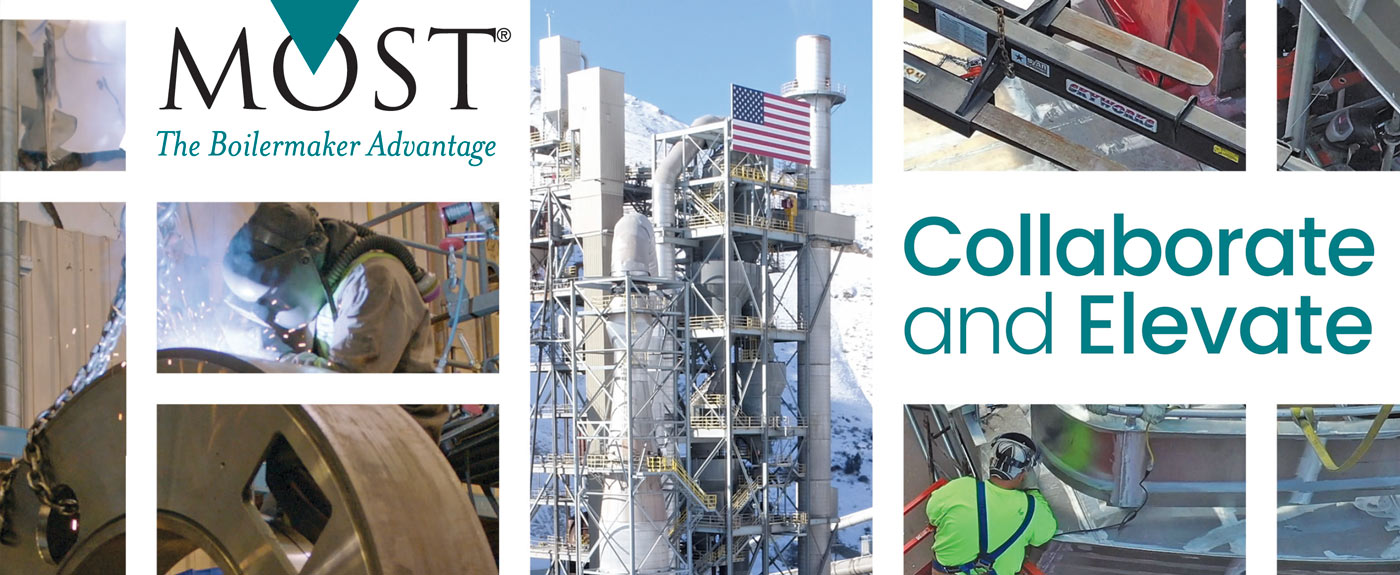Business development requires constant improvement

Johnny Baca, Marketing Manager
International Brotherhood of Boilermakers

Dominic Lucero, Business Agent
Local 549 (Pittsburg, California)
As Boilermaker industries and the union face changes and challenges, practicing proactive business development is imperative to the union’s future.
It’s not just rhetoric. Johnny Baca, IBB’s Marketing Manager and Local Lodge 2080 Business Agent reminded conference attendees of trending statistic he shared during the 2024 Construction Sector Operations Conference in March that point to an alarming outcome: At the current rate of membership decline, the Boilermakers union is on a path to close its doors as an organization by 2050.
“Business development is how we persevere in the face of adversity,” Baca said. “We see what’s going on and the decline, and we’re simply not going to accept it.”
He gave an overview of what business development he shared several key tenants for successful development:
- Practice continuous improvement.
“We need to always be better than we were yesterday,” he said. “If we’re not growing, we’re dying. The second we stop growing, we’re shrinking.”
- Engage a growth mindset rather than a fixed mindset.
Complementing the idea of continuous improvement, growth mindset means taking calculated risks, stepping out of the comfort zone, being ok with not knowing all the answers, leaning into mistakes rather than avoiding them and looking for ways to do things differently.
“Fixed mindset is stagnation, avoiding mistakes, thinking something is good enough, and just giving up,” he said. “And that’s normal to want to think that way. The challenge is to step out of the comfort zone and use a growth mindset more. Most important is to keep going, never give up.”
- Data and information resources are vital
“If you can’t measure something, you can’t improve it,” Baca said. “Data must be at the forefront of everything we do.”
Baca called on Dominic Lucero, Local 549 (Pittsburg, California), business agent. Lucero said he realized he was passing 12 jobsites on the way to his Boilermaker jobsite several hours from home, which caused him to wonder what was going on at those sites and why Boilermakers weren’t working there.
That question led to seeking data from MOST to find out where Boilermakers were working over a certain time frame and data on what was going on at the job sites he passed—and who was working on them. L-549 then worked on a plan to bridge the gap between owners and contractors to try to connect the dots to employ Boilermakers, and they created a template.
“It’s still in development, and we’re consistently getting better all the time,” he said. “We’re seeing some progress, and we’re starting to get back into businesses we haven’t been in in a long time.”
Baca noted that MOST has a wealth of helpful data. But he cautioned that using data correctly and successfully means using all the data to get a full an accurate reading, rather than cherry picking information simply to fit a narrative.
- Ask tough questions and don’t take things at face value.
Baca said that even when the union has successes, it’s important to ask the questions about how to improve to gain more market share and advance the industry: “Who can we partner with, and how? Always be asking questions.”
Baca pointed to business development tools available to Boilermakers and Boilermaker owners and contractors: The MOST programs, the M.O.R.E. Work program and industry promotion. He noted that “investing in growth is what the M.O.R.E. Work program is for,” stating that through the program, Boilermakers have recovered more than 2 million man-hours that would not have otherwise happened.
He noted how industry promotion at large-scale industry events, such as the Reuters Downstream Conference, PowerGen and others builds partnerships and new opportunities, and he described how MOST programs optimize Boilermaker skills and keeps Boilermakers positioned as the best business solution for contractors and owners.
Baca also shared a tripartite success story proving the importance of programs like the MOST NTA. Through feedback from owners and contractors, Western States Boilermakers learned about the need to more increase Boilermakers’ mobility and get them ready to work faster. After listening to the concerns and plotting solutions, the Readiness for Work program was created, and it was included in negotiating the most recent Western States agreement. Through the program, Boilermakers get training they need up front—and are paid for training.
“Members are better off because they get the training they need, they get paid for training, and they get on the jobs faster, so they get paychecks faster,” Baca said. “And contractors and owners get skilled and trained Boilermakers on the job faster, ready to go.”
He stressed that communication, like what occurred with the Western States Boilermakers, contractors and owners is important, and that there’s no need to wait six months to meet in person at tripartite events to discuss problems and find solutions together. Zoom, WebX and Microsoft Teams mean no more excuses not to meet.
“Things are far more competitive than ever. We’ve got to work together,” he said.
View the presentation Business Development and Tripartite Successes

